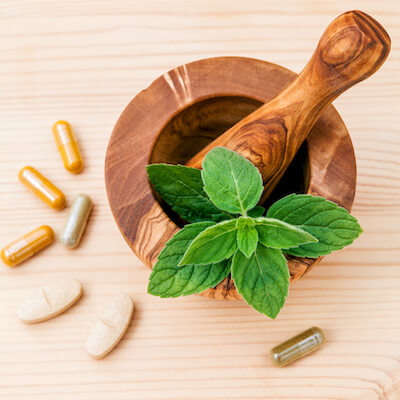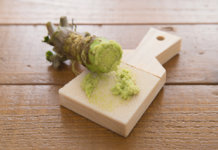Stressed Out? Here are 6 Vitamins and Supplements Which Will Help
Our modern world is a stress-filled place—and no, the problem is not improving anytime soon. This is not good, since daily stress is not just unpleasant, but can lead to such dangerous health conditions as:
- Insomnia
- Weight gain
- Mental fog
- Poor work performance
- Inability to concentrate
- Diabetes
- Heart disease
- Hypertension
In fact, one of the best ways to improve your health is by reducing the effects of chronic stress. Doing so can help you feel better, live longer and even be more productive.
To accomplish this, you can use methods such as yoga, mindful meditation, exercise, or enjoying a good book or movie. However, we don’t often have time to go for a meditative walk or read a book in the middle of our workday, which is where stress-reducing vitamins and supplements come in.
And, here are 6 which can help.
6 Stress-Reducing Vitamins and Supplements
First, while the following supplements are all natural, safe, and mostly available in foods we eat, high concentrations of them may not be good for you and some may interact negatively with medications.
Therefore, if you are currently taking any medications or are otherwise under a doctor’s care, you need to consult your physician before using any supplements. Consulting your doctor regarding safe levels of supplements is also recommended.
That said, here are 6 vitamins, adaptogens and amino acids that can help lower your stress response:
1. Vitamin B
B complex vitamins are essential to a healthy nervous system and offer other benefits such as controlling your blood sugar, stabilizing your mood and supporting your adrenal function.
This makes adding a high-quality, food-based supplement containing all 8 essential B-vitamins including thiamine, riboflavin, niacin, pantothenic acid, vitamin B6, biotin, folic acid and vitamin B12 a recommended approach to controlling your stress.
You can also add these whole foods rich in B vitamins to your diet:
- Eggs
- Leafy greens
- Fresh fish and shellfish
- Meat
- Whole grains
- Legumes
- Nutritional yeast
Remember, the higher your stress, the more B-vitamins your body depletes. Plus, B-complex are essential for many other facets of your health beyond stress management, so don’t skimp on these essential vitamins.
2. Magnesium
Magnesium is a mineral essential in maintaining a healthy nervous system, though one which many of us are deficient in. This is because we not only lack it in our diets, but consumption of diuretics, alcohol, coffee and tea also deplete levels of it.
The good news?
In addition to supplements to take advantage of magnesium’s relaxing benefits, many of the richest sources of magnesium are foods you probably love (remember, chocolate is on the list!).
These include:
- Dark chocolate
- Bananas
- Leafy greens
- Tofu
- Salmon
- Legumes
- Nuts
- Whole grains
Or, for the ultimate in relaxation and stress-relief after a long day, try a nice hot soak in a steaming bath of Epsom salts. Not only will the warm water sooth you, but your skin will absorb magnesium from the Epsom salts to leave you feeling relaxed and ready for the best quality sleep you’ve ever had—ahhh!
3. Melatonin
Speaking of sleep, another side effect of stress is insomnia, and melatonin can help. Melatonin is your body’s natural sleep hormone, although production of it can be reduced by everything from vitamin B deficiency to too much screen time.
However, melatonin is a hormone produced naturally in your body, which means there is a chance that utilizing an outside source on a regular basis may inhibit your body’s natural production of it.
However, there are foods that can increase your serum melatonin concentrations to improve your quality of sleep, including:
- Nuts
- Eggs
- Fish
- Grapes
- Cherries
- Strawberries
- Most vegetables
- Some mushrooms
Even so, there are those times when you simply cannot get to sleep, which is when the occasional melatonin supplement comes in handy as a safe and effective sleep aid—just avoid supplementing with it on a regular basis.
4. Rhodiola
Rhodiola is an herb known of as an “adaptogen” due to its ability to help your body adapt to stress. It is found in Asia and Russia, and studies show that people who suffer from chronic fatigue can greatly benefit from its consumption.
When used on a daily basis, Rhodiola can reduce fatigue, inflammation and stress along with boosting the immune system and even stimulating sexual energy. It is available in capsules, teas and tablets, and should be used a minimum of four weeks before evaluating its effects.
Other adaptogens to consider include eluethero root, ashwagandha and holy basil, all of which can help you feel calm, alert, and productive.
5. Valerian
For centuries valerian has been used for its relaxing, soothing effects. It is rich in antioxidants, valerenic acid, and isovaleric acid – all of which combine to promote feelings of tranquility, reduce stress and improve sleep.
For fast effects and a great night’s sleep, try a valerian tincture just before bed, or you can use capsules, powders or teas.
6. L-theanine
L-theanine is an amino acid with calming, stress-relieving properties. This is because it stimulates alpha waves while boosting levels of stress-relieving hormones such as dopamine and serotonin. At the same time, it lowers levels of stress-hormones such as adrenalin and cortisol to leave you feeling calm and relaxed.
Good sources of it include guarana, yerba mate and green tea, all of which also contain caffeine. This not only helps reduce symptoms of stress and anxiety but improves your memory and alertness as well.
A Final Word
Combating stress may seem like a daunting task, but with a few mindful practices, vitamins and supplements, it can be easier than you think. Plus, doing so won’t just help you feel better, it can help you live longer, be happier, and lead a more productive life.
So, rather than continuing down the negative pathways of chronic stress, why not try a few supplements and practices to help you feel your best?
After all, feeling your best is what life’s about—enjoy!




